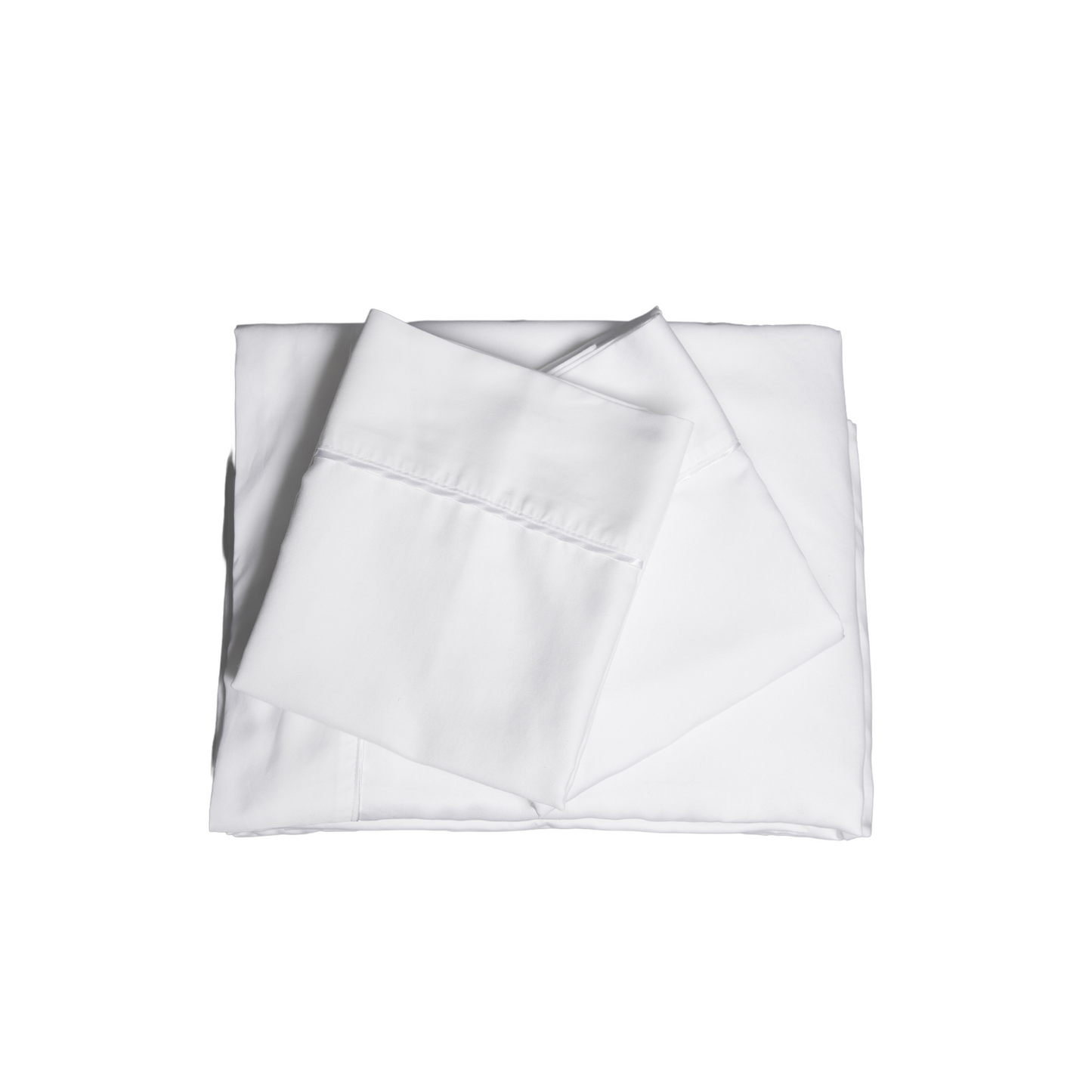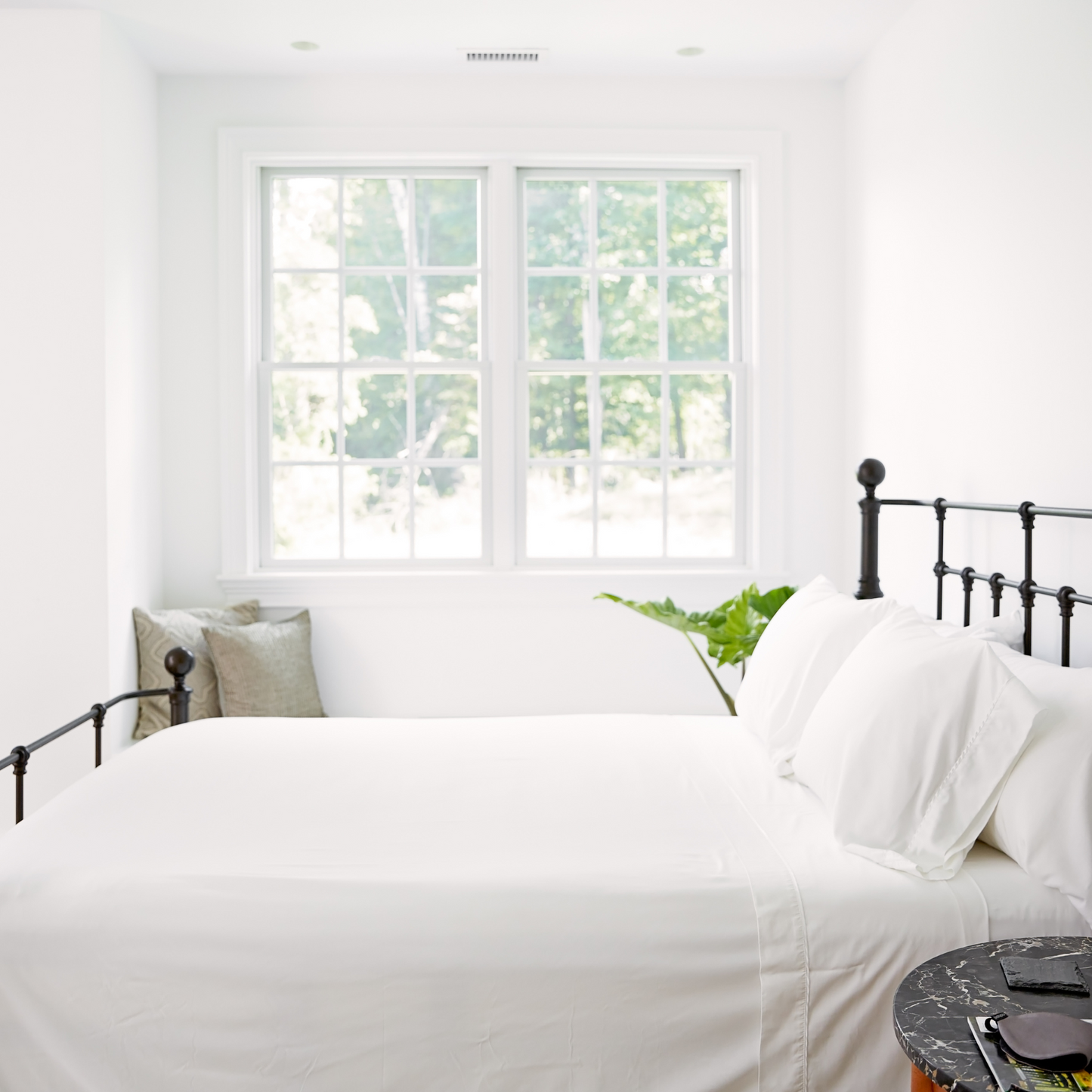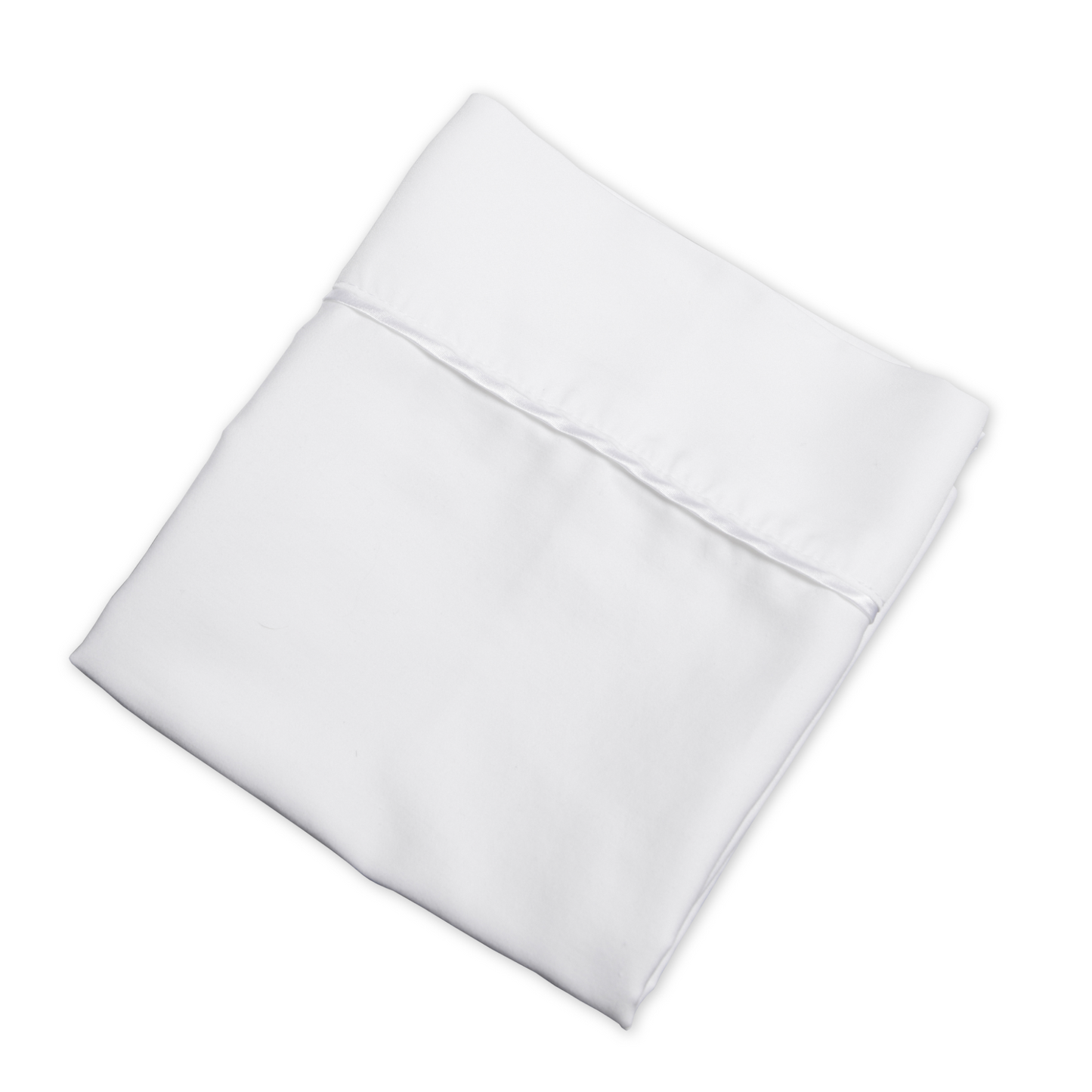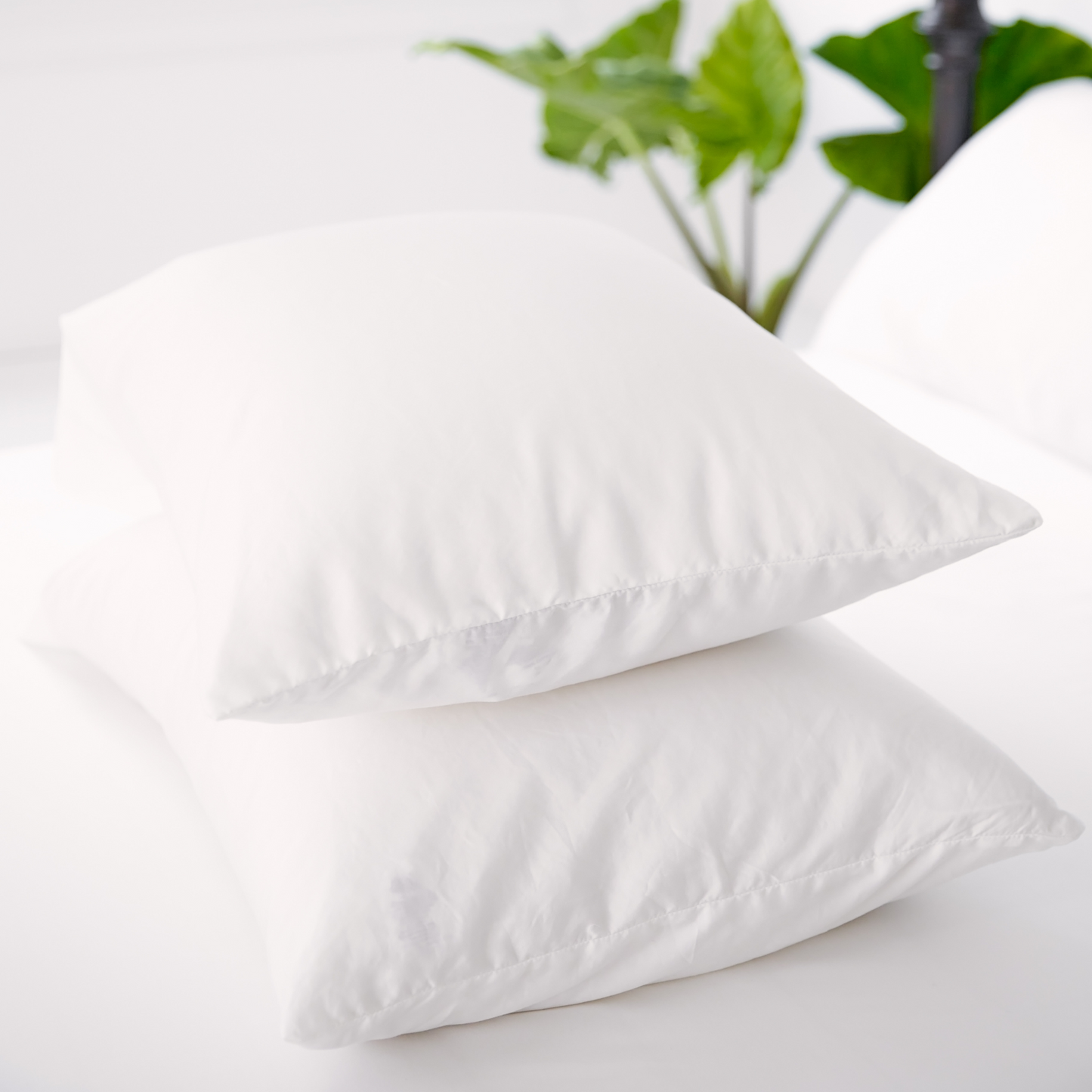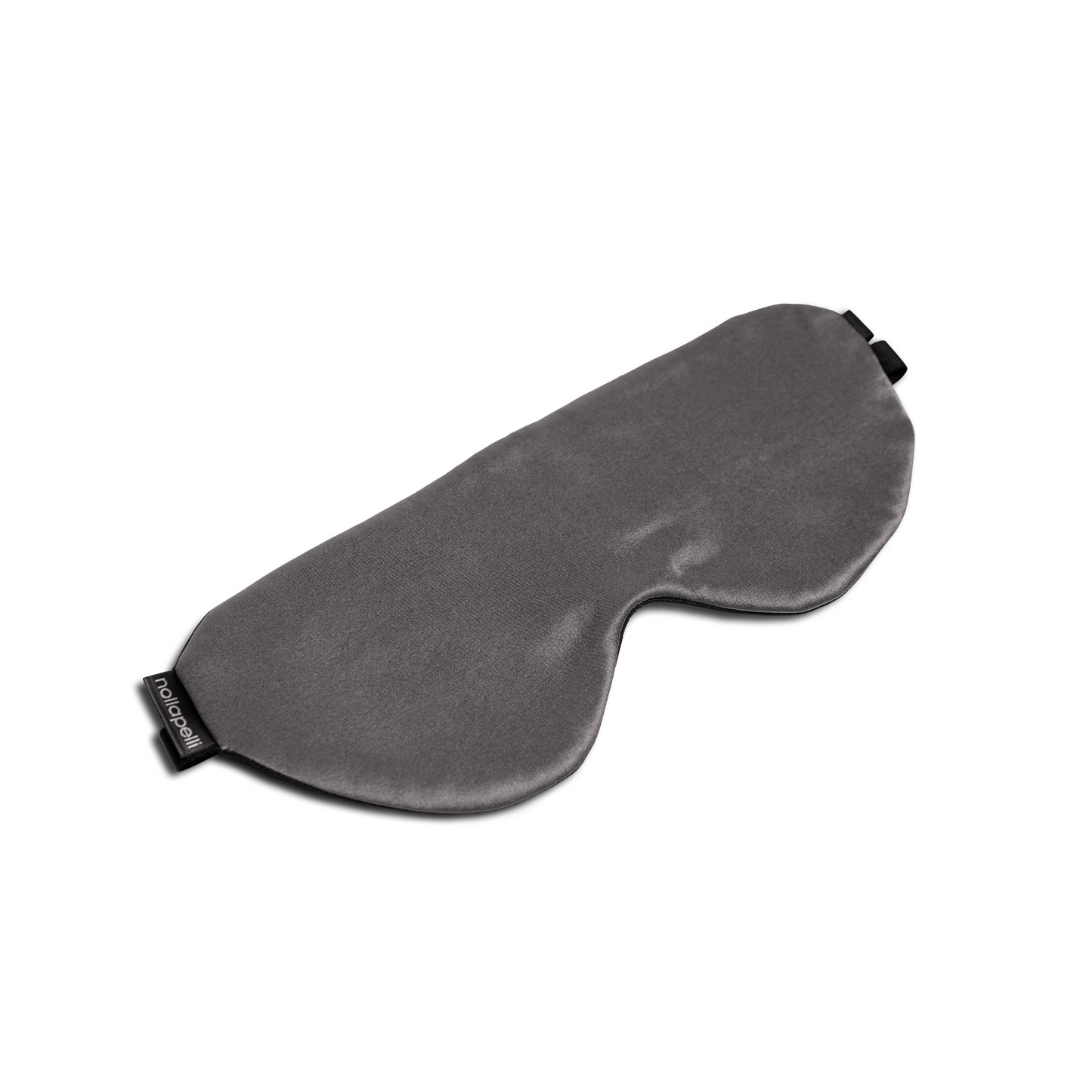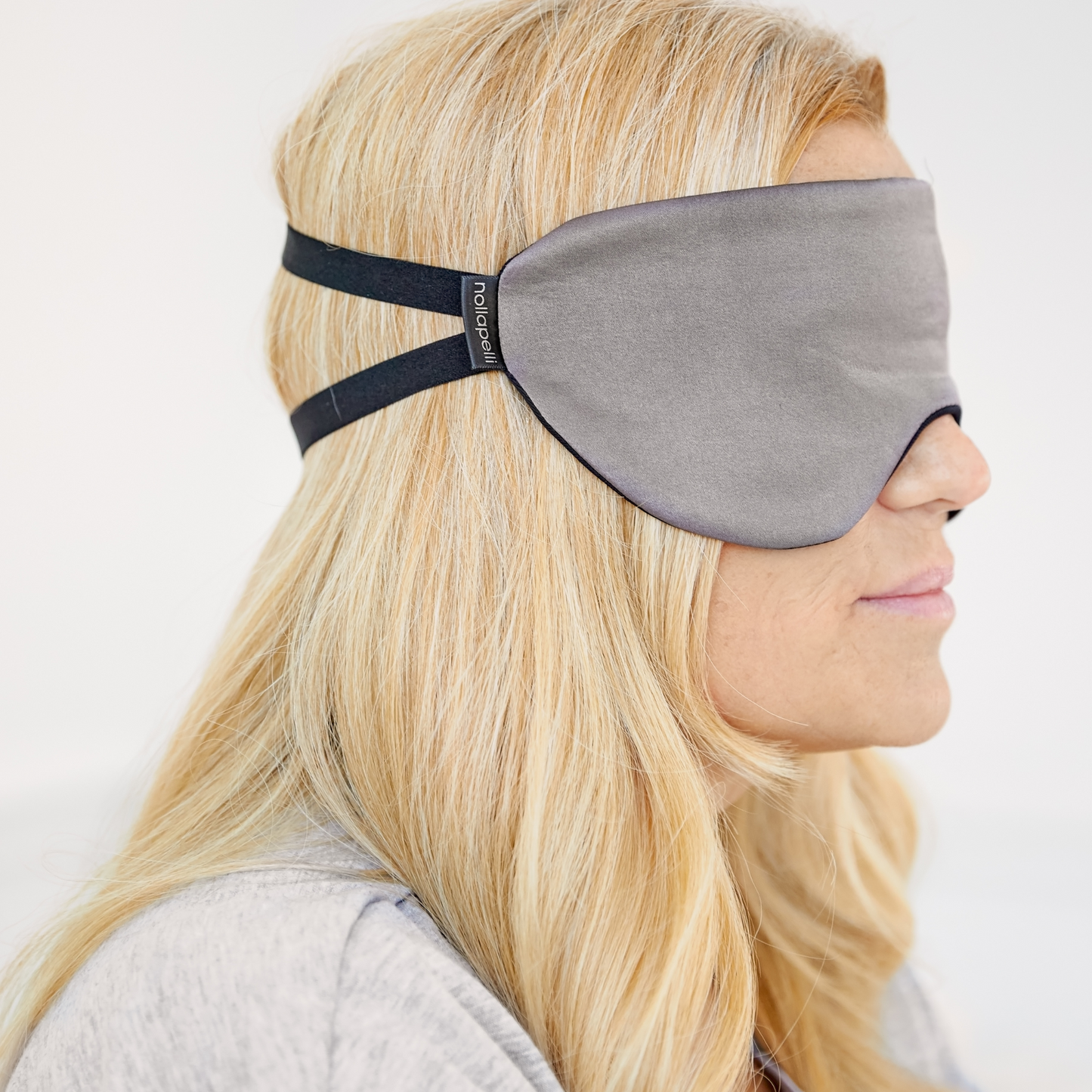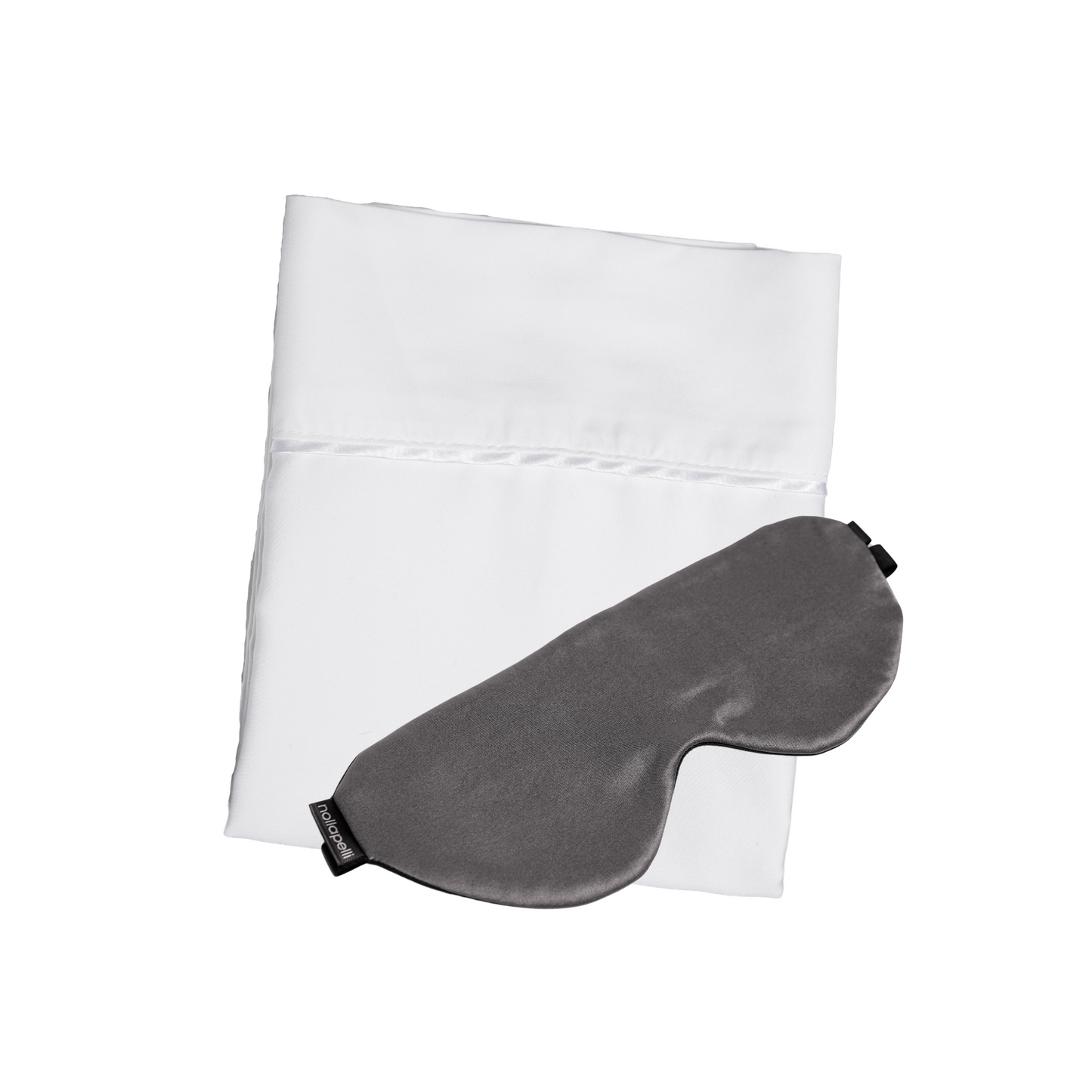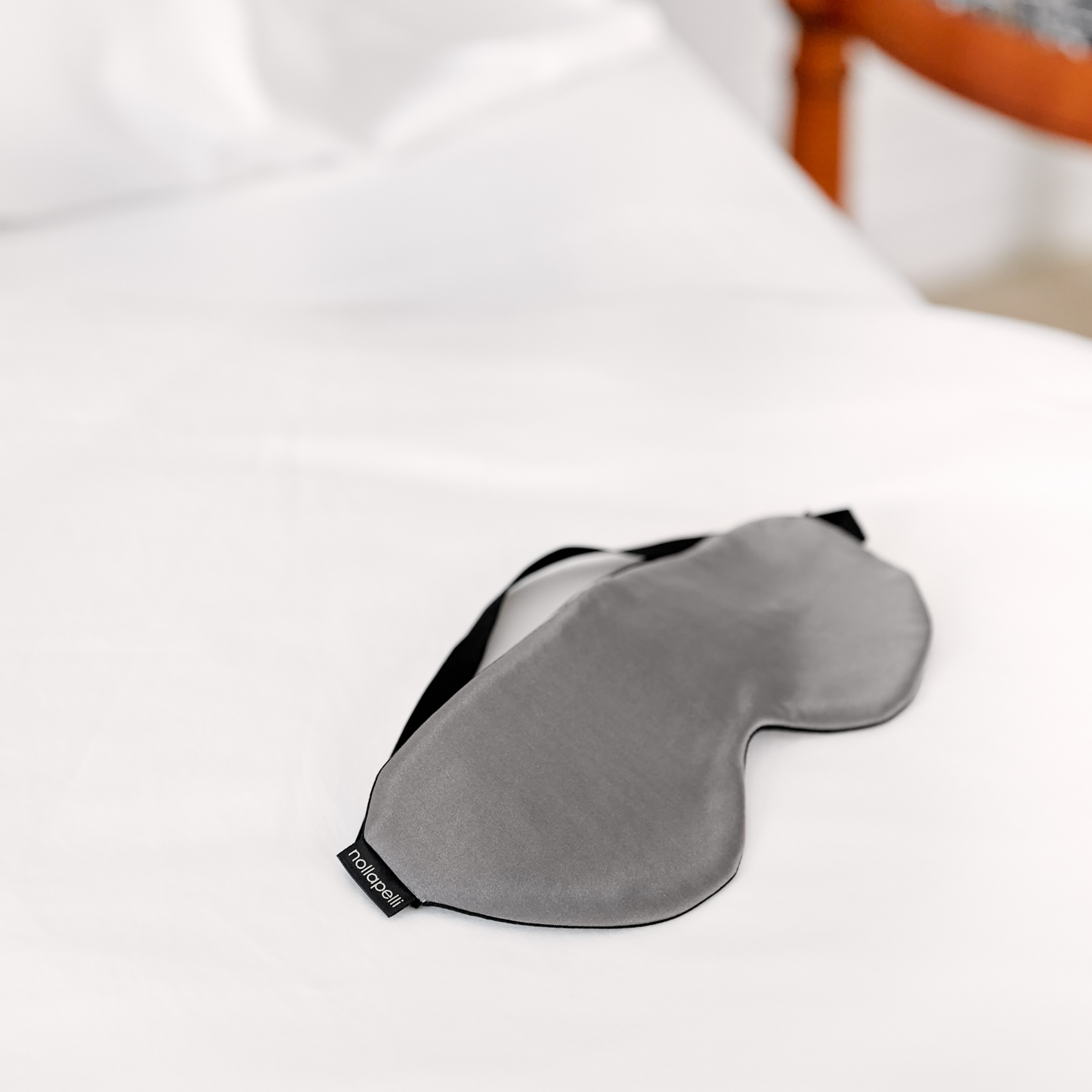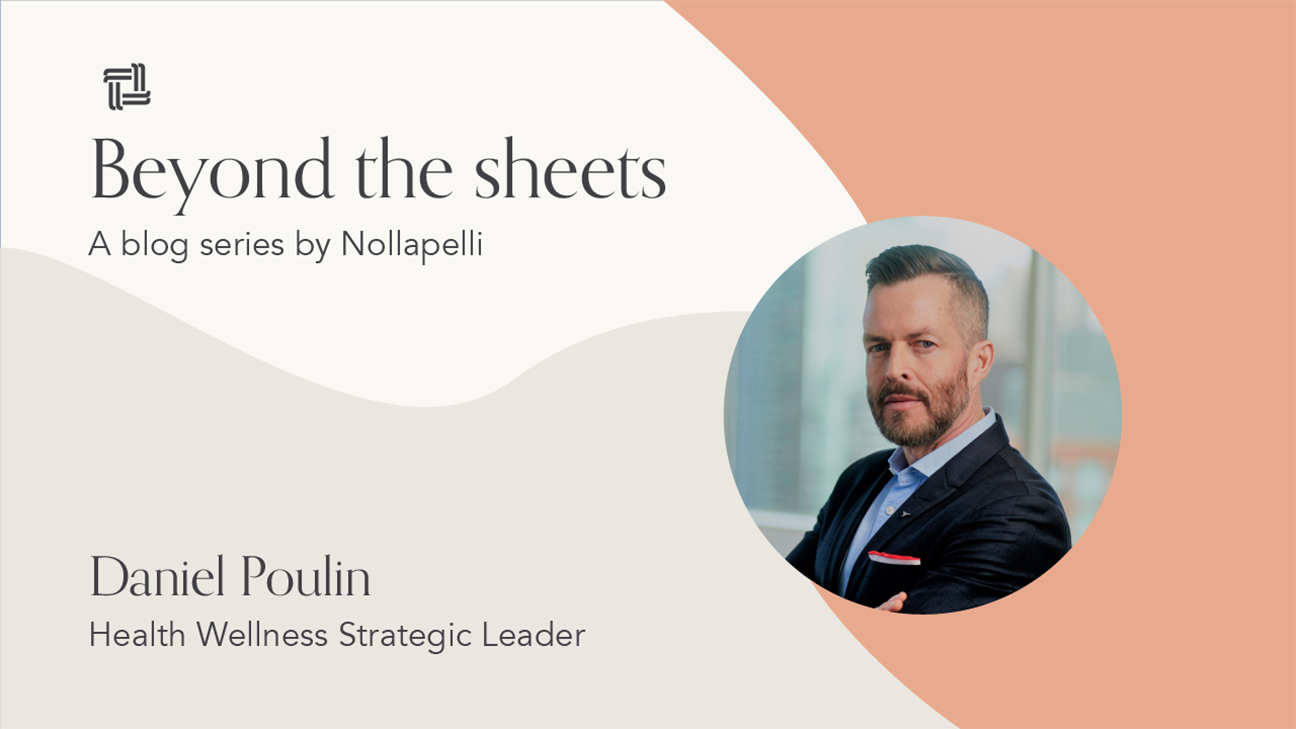
Daniel Poulin is a visionary, plain and simple. With over 30 years of strategic leadership, innovation and advocacy, Daniel is poised to lead and change the industry for the better.
In our last Beyond the Sheets conversation of 2020 (we did it, folks!), Daniel discusses accessible wellness and what that looks like for spas, hotels and the community as a whole. He dives into the impact of COVID-19 on our social wellness and the importance of social interactions on our health. And, we, of course, talk about sleep and how it is the most crucial element to extending one’s life and how bedding is very much a part of that conversation.
Throughout 2020, as Daniel said, “we're not in the same boat, but all in the same storm.” Thank you for your attention (we know it’s limited right now) and open minds when it comes to our Beyond the Sheets series. Daniel, as you will see, is the perfect guest to end on a positive note moving forward to 2021. Cheers.
…
Written Transcript
Jessa Gibboney (Nollapelli): I am very excited to talk to you. I have done my research on the history of your career and Alison, our founder, has talked so highly of you. I'm very excited that this is going to be the conversation that wraps our series for the year. So thank you so much for joining us. You have been in the health and wellness industry for a long time. You are quite the expert and it seems like that interest really sparked early in your life. And I just want to know what your fascination is with the hospitality, wellness, health industry.
Daniel Poulin: It is true that I've been in this professionally for a long time, almost 30 years. I come from Quebec. I grew up in a large family and we were very active. So I think my passion for wellness actually started with my passion for fitness. My strongest background really comes from the fitness side of wellness. When we were kids, our parents put us in any kind of sports that we played. I was quite a good track athlete. And I ran track for the National Junior Championship many, many years ago, but I was really into fitness and then my brothers and my sister, everybody was really into fitness.
This continued to grow, I ended up going to university and I did an undergrad degree in kinesiology once again, because I was so passionate about fitness. And then, because I felt like there was more to wellness than just fitness, I did a masters of science degree in nutrition, because as you think about the main component of wellness, obviously fitness is one of them. Nutrition is probably a second one, a very important one. And the third one is sleep, which we are going to talk about today as well. I wanted to basically have the education behind me in order to give me the tools that I felt I would need for the rest of my career in wellness.
After my master's degree, I moved to Vancouver in 1992 and I was going to go to UBC, University of British Columbia and study and do my PhD and become a professor. Then I realized it's not really my path. I don't really see myself doing research or teaching in university. That's when I stopped. I basically started working in fitness full time, and I was teaching aerobics in those days. I was a personal trainer. I was running a wellness center in a community center here in Vancouver. All of this started evolving to where I am today in wellness.
Jessa: And you have carved a niche in the health and wellness industry, and a lot of that has to do with diversity, accessibility and inclusion. I want to hear your definition of “accessible wellness,” because I don't think we, as a society, use that term often.
Daniel: No, you are correct. Actually, I think it's being used more and more so diversity and accessibility, or even even diversity and inclusion and accessibility are maybe a little bit different. For me, accessible wellness is really wellness for everybody. And because of my background working in a community center, I have this strong passion for really making the population, the community healthier as a whole. So as I stepped away from that and went into the luxury hospitality business, obviously this is a little bit different. You have guests who are able to afford luxury wellness, as we call it, by going to the spa and the fitness centers we have in our luxury hotels. I think this is fascinating as well. It's also something I'm passionate about, but I also feel accessible wellness, more and more people are talking about wellness for everyone.
Accessible wellness is really wellness for everybody. And because of my background working in a community center, I have this strong passion for really making the population, the community healthier as a whole.
You go to countries like China, and I lived in China for a couple of years. You see what happens in public parks, in China with people just spontaneously going to the park and dancing, playing ping pong, playing badminton, being very active, but as a community, and we don't have this in our part of the world, we have other organized fitness. And normally when you talk about organized fitness, it normally comes with a price tag, right? Very few of them are free. One of the things that I really liked when I was living in Toronto is that in the park near where I was living, there was actually some sort of, you can think about it as almost like a kid's playground, but it's for adults, it's basically outdoor fitness. It was completely free. And it's basically a bunch of structures that are placed into a pocket.
And they have many of them around Toronto. And basically a lot of people were going there, especially when COVID started, because you wouldn't go to the gym, the gyms were closed, where you were actually able to continue with your work out within the community. And the social wellness that came out of this was unbelievable. So that's more about the accessible wellness as we were trying to make it easy for anyone to look after their health and wellbeing, by making it free or not expensive, or making it easily accessible around where they live. So they don't have to drive. They don't have to take public transit in order to go and look after themselves, whether it's for fitness or any kind of other wellness activities.
Jessa: And you also hit on social interaction. You are big on social interaction as a part of our health and wellness. How have you seen that evolve this year? This year we've certainly been dealt a hand where social interaction isn't quite allowed or permissible. How have you seen that affecting the wellness industry?
Daniel: Yeah, this is probably one of the worst parts of the pandemic, and we still don't know how much we are going to be affected, but I can feel from my personal experience of having to isolate myself, it's not easy. It's not healthy. It's mentally very, very difficult. And a lot of people right now have mental health challenges because of the COVID situation, which can instigate fear, but also with the isolation, social wellness is something that is very much talked about now. How do we create social places for gathering?
So if you think for example of a spa, a spa is a very isolated way of looking after your wellbeing, which is fine. We don't have to have everything social, but you know in Fairmont [Fairmont Pittsburgh Hotel], for example, when we were building facilities, we made sure that the lounge where people are gathering, we did have one in the, in the male locker room. We had one in a female locker room, but we also had one in the co-ed space where actually people of any gender could gather and socialize because it is a place where sometimes you feel isolated. And if you go in with your life partner, then maybe it makes it difficult if your opposite sex to gather into a social place. Right?
So, these are just examples, there's a space where when you design the cities want to make sure you encourage social wellness, and you can think about group exercise. I was of that generation who did teach aerobics in the time of Jane Fonda. It's come and gone, but it is still, but one of the strongest trends in fitness, group exercise. Even if it's a small group. And the reason why you do this is because you want to see other people who like similar things that you do. You want to be around people who have similar interests and social wellness is a big, big component of that.
Jessa: What do you think the impact is going to be on individuals, on the health industry as a whole, as far as the social interaction - not being able to do group fitness and visit spas, how do you see that impact? It's a bold question. It's a hard question, right.? But how do you see this impact on health and wellness after this year? And I mean, it's not going to end at the end of 2020.
Daniel: I think we've heard the expression that we're not in the same boat, but all in the same storm.
Jessa: Yes.
Daniel: The storm is the same. We're all faced with that disturbing situation, which is covered, but our boats are not all the same. What it means to me is that the amount of time that I, or people like me have spent on their health and wellbeing throughout their life has built a certain boat that is maybe more resilient. So what happened is that when people were faced with COVID and if they have never really spent enough time looking after their own well-being, it is possible that their boat may not have been as equipped to navigate the storm. So we're not all starting equally. And it doesn't mean that because you took time looking after your wellbeing, that your boat is going to go to it and you're going to be coming out of it without any any issues, but, you know, wellbeing and wellness is something that is meant to be done every day throughout your entire life.
What it does is that it builds a healthy body, a healthy mind that when a situation like COVID happens, you are better equipped to navigate the storm in order to come out a bit stronger. We all realized that this was going to be a challenge. And many people took on fitness with virtual fitness classes. They took on looking after their wellness and wellbeing, by going outside and walking and riding bikes and doing all of those activities. And that's unbelievable. I love this, and it's not too little too late. It does not matter, whatever needs to spark somebody to look after their wellbeing, I think as a really, really high value. And my hope is that when we come out of this and the vaccine is out and everybody gets vaccine and we can put this behind that, all of those good, healthy habits that people have started doing are going to continue because they have allowed the change in their life in order to be able to go to that storm a little bit more equipped. It's important that we don't give up everything that we've learned for those of us who just started, we need to continue and maintain those healthy habits.
Jessa: I love the positive outlook for that answer. It’s a refreshing answer. I want to go back to accessibility and inclusion because I want to hear your thoughts on where the health and wellness industry can do better.
Daniel: Thanks for asking because I think it's very important. As a whole, the wellness industry does realize that it is not known to be very diverse. And we tried to be as specific as we wanted. Diversity is one thing. Inclusion is another one, but when we talk about diversity, it's been said many, many times. It's not me saying it, but you know, it's a lot of fitness and spa. It's a lot of white people looking after white people. This is the reality. It is something that we now recognize and we need to put some system in place in order to change this. Every company in the world now is not able to escape the entire concept of diversity, equity and inclusion, and so is the industry of fitness and spa and wellness.
Lots needs to be done about people feeling inclusive. There's different parts of the world. There are different parts in the United States, different states, people with different mentality. It all really doesn't matter. It is about the fact that one day you are going to have a diverse workforce working in your fitness center and in your spa. In the end, everybody is better by having people not exactly like you. We used to talk about when you apply for a job, they try to find out if you fit the culture of your new employer. Even when I was doing interviews, I hired many people in my career. You always think about, is this a right fit? Is this person the right fit for the culture of my company?
Well, now the conversation has changed a little bit, and it's actually finding somebody that may not be the right fit for the culture. Because in fact, if you keep on surrounding yourself with people who look, speak, think like you, chances are that you're not going to be very innovative and be able to navigate to whatever life is throwing at us. You need to bring on your team people who actually are not like you, that don't think like you, they have a different lived experience than you. This is where the value comes. The research has proven that financially companies who are diverse will have a greater success than companies that are not diverse.
I wasn't involved in launching our diversity and inclusion committee and in things as simple, like the only reason why I got involved in this is that we realized a few years ago in spa fitness, we do have locker rooms that for the most part are gender specific. And we have people in the world who are non-gender specific. And then when they come to our hotels, we pride ourselves in being welcoming to everybody. But it's not very welcoming when you come to our spa and you don't really fit in any of the two locker rooms that we have for you to offer. So where do you go? This was brought up to me, and then we ended up doing a lot of work on this. And there are ways around this, but there's a lot more work that needs to be done because in 50 years from now, this is going to be so common. So to speak that people who are non-binary or gender diversified, that I hope that we are going to have facilities that are welcoming for everybody.
Jessa: That’s wonderfully said. Now, I want to pivot to sleep because we are all about sleep. We actually have in our press kit, a quote from you when you were the Director of Spa and Fitness at Accor of North and Central America. I'm going to read it to you because I love this quote.
You said, “As the wellness industry pivots and innovates, I am excited to see new wellness textile options for spa and hotel rooms. High performance fabric has changed the sports and fitness industry for years now. Isn’t it time that the fabric you wrap your body in for eight hours at night also evolves?”
And of course, this speaks to our heartstrings at Nollapelli. I would love to know your opinion on bedding being talked about on a global and national stage. We feel like there's still a lot of room for conversation to be had about bedding and the type of fabric that you sleep in, hopefully eight hours a night, that's coming into contact with your skin that eventually affects your wellness. So do you see bedding as a conversation as far as textiles and affecting your health?
Daniel: I think sleep is definitely being talked a lot in the wellness world. The research has proven it and of all the wellness activities that you can do to extend your life, sleep is number one. Not eating well, not exercising, not managing your stress. None of those is going to give you the longest life. Sleep is going to give you the longest life. So from that standpoint, it is interesting to see that we actually need to talk about sleep comfort. There's a lot of companies out there, even innovative companies that we are working with that actually are creating those wellness beds that are super fantastic.
The research has proven it and of all the wellness activities that you can do to extend your life,
sleep is number one.
It has to do with temperature control, about body pressure, but then people forget about this. I quoted that quote, what I think is interesting is that many years ago you used to exercise with a cotton t-shirt, the t-shirt became wet and it wasn't great. And then we start talking about performance fabric, and nowadays everybody is working out with dry fit or any of those kinds of fabrics that are really considered high performance fabric. I really don't see why this cannot be extended to the bedding that we sleep in. So there should be something that comes out in the space of high-performance sheets, allowing you to have a better night's sleep, because it's one thing to have a high-performance sheet. If it's on the terrible bed, it's not going to work, but if you are spending a lot of money and not enough time as hotel companies, or as individual on to buying a mattress that is going to give you the best night's sleep, we should not forget the fabric that we put on top of this mattress to find out if there is actually an impact of that fabric on our night's sleep, knowing that this is the number one impact of your wellness and longevity, right? So it's all, it's all tied in together.
Jessa: I don't think a lot of people know that sleep is number one. We tout it at Nollapelli as sleep is the foundation of wellness. It's the foundation of wellness, but a lot of people still don't see it that way. I mean, our mentality is just go, go, go.
Daniel: No, you're completely right. You know, what is in the mind of people is sometimes directed by companies who have something to gain from, from selling, you know, fitness equipment, the fitness industry is huge. And I mean, don't get me wrong. Exercising is super, super important for your health and wellbeing, but you know, it's somehow once you buy your bed and if you have your bed for 10 years, sometimes there's no other times where people are coming, knocking on your door, reminding you that sleep is important, except if you don't sleep well.
I sleep super well, but I know that if you have trouble sleeping, it is such a deterrent on your health and your day to day life, that it becomes the number one preoccupation of people who don't sleep well, they would pay anything to have a good night’s sleep. Sometimes they have to go to the medication side of things and they all realize that it's not going to be the solution. And when they don't have it, this is when they start spending money on anything that could give them a good night's sleep.
Jessa: Right. And that's such a great transition, actually. My last question, which is, you said you are a wonderful sleeper, so what is one thing you do every day for your sleep to make sure that you get that quality sleep that you need?
Daniel: I exercise. Every day. So exercising is really big in getting a night's sleep. I go to bed pretty much at the same time every night. So let's say for me, it's 9:30pm, I'm an early going to bed kind of person. I'm also a nerdy riser. So I think that it's been proven many times that the consistency of your night's sleep is more important than actually the number of hours that you see. Everybody knows about the eight hours per night. Right. But that's fine. But I think those eight hours at the exact same time every night is also very important. It's not always possible. And it's fine.
Jessa: I want to thank you so much for jumping on and talking with us today, we've had a lot of big topics in a short period of time. I'm so happy that we're ending 2020 on such a positive note with talking to you. I really appreciate the time, Daniel.
Daniel: It was truly my pleasure.

